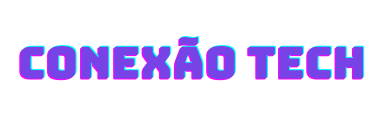Starting your writing journey can be exciting and challenging. The right tools can streamline your process, enhance your skills, and help you stay organized. Whether you’re crafting fiction, non-fiction, or professional documents, these essential tools will support you every step of the way.
This guide explores writing tools that are perfect for beginners, from basic necessities to advanced resources.
1. Word Processing Software
Every writer needs a reliable platform to draft, edit, and format their work.
Popular Options:
- Microsoft Word: Versatile and widely used for all types of writing.
- Google Docs: Cloud-based, great for collaboration and accessibility across devices.
- Scrivener: Ideal for long-form projects like novels or research papers.
Tip: Experiment with free options like LibreOffice or Zoho Writer if you’re on a budget.
2. Grammar and Spell Checkers
These tools ensure your writing is polished and error-free.
Recommended Tools:
- Grammarly: Highlights grammar, punctuation, and style issues, offering suggestions for improvement.
- ProWritingAid: Combines grammar checks with in-depth style and readability analysis.
- Hemingway Editor: Helps simplify complex sentences and improve readability.
Tip: Use these tools as a supplement, but always review suggestions critically.
3. Writing Organizers
Organization is crucial, especially for larger projects.
Tools for Organizing Ideas:
- Trello: A visual board to track writing progress and manage tasks.
- Notion: Combines note-taking, project management, and databases for a customizable workspace.
- Evernote: Perfect for capturing ideas, research, and drafts on the go.
Tip: Organize your work into sections, chapters, or themes for easy navigation.
4. Research Resources
Good research enhances the credibility and depth of your writing.
Top Research Tools:
- Google Scholar: Access academic articles and research papers.
- Evernote Web Clipper: Save and organize online resources directly into your notebook.
- Worldbuilding Tools: Use apps like World Anvil or Notebook.ai for creating fictional worlds.
Tip: Keep a dedicated folder or document for research notes and references.
5. Writing Prompts and Generators
When inspiration runs dry, prompts can kickstart creativity.
Prompt Tools:
- Reedsy Prompts: Weekly prompts designed for fiction writers.
- Story Starter: Generates random prompts to spark ideas.
- Writing Exercises: Offers a variety of challenges to improve specific skills.
Tip: Adapt prompts to fit your genre or interests for a personalized touch.
6. Focus and Productivity Tools
Minimize distractions and boost your writing efficiency.
Best Productivity Apps:
- FocusWriter: A distraction-free writing environment with customizable themes.
- Forest: Helps you stay focused by growing virtual trees as you work.
- Pomodoro Timers: Apps like TomatoTimer encourage timed writing sessions with breaks.
Tip: Experiment with time-blocking techniques to find your most productive writing rhythm.
7. Online Communities and Feedback Platforms
Connecting with other writers provides support, feedback, and motivation.
Top Communities:
- Critique Circle: Offers detailed critiques from fellow writers.
- Reddit’s r/writing: A vibrant community for tips, advice, and sharing work.
- Wattpad: Share your stories and receive feedback from a global audience.
Tip: Engage regularly to build relationships and learn from others’ experiences.
8. Publishing and Formatting Tools
If you’re preparing your work for publication, these tools are invaluable.
Recommended Tools:
- Reedsy Book Editor: Formats your manuscript for self-publishing.
- Vellum: Creates professional-quality eBooks and print layouts (Mac-only).
- Canva: Design covers, social media graphics, and promotional materials.
Tip: Research formatting guidelines for your chosen platform to ensure a professional presentation.
9. Inspiration and Idea Management
Keep track of ideas as they come to you, no matter where you are.
Idea Capture Tools:
- MindMeister: Create mind maps to visualize story connections.
- Milanote: Organize thoughts, images, and notes in a visual format.
- Google Keep: Jot down quick ideas and access them across devices.
Tip: Review your idea bank regularly to see if any spark a new project.
10. Writing Analytics and Progress Trackers
Track your progress to stay motivated and identify areas for improvement.
Best Tracking Tools:
- Word Counter: Monitor your word count in real-time.
- NaNoWriMo Goals Tracker: Great for meeting daily writing goals during National Novel Writing Month.
- Writing Streak Apps: Tools like 750 Words reward consistent writing habits.
Tip: Set realistic daily or weekly goals to build momentum and avoid burnout.
The right tools can make a world of difference for beginner writers. Whether you’re looking to organize your ideas, refine your grammar, or connect with a community, there’s a tool to meet your needs.
Experiment with different options to find what works best for your style and projects. Remember, tools are there to support your creativity—not replace it. Happy writing!

I’m Mariana Tavares, creator of a blog dedicated to helping beginner writers with practical and valuable tips to develop their skills and achieve success in their careers.
